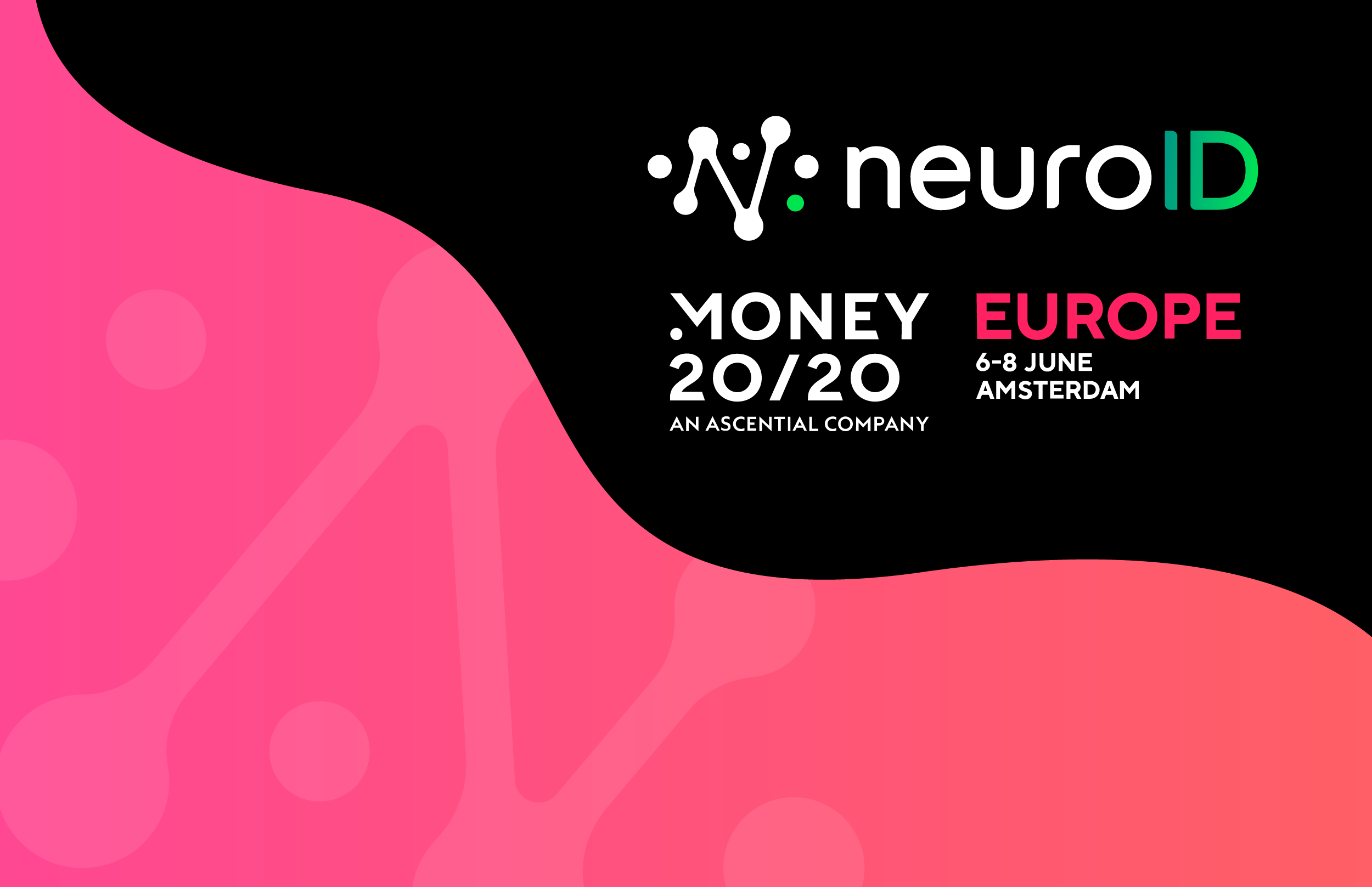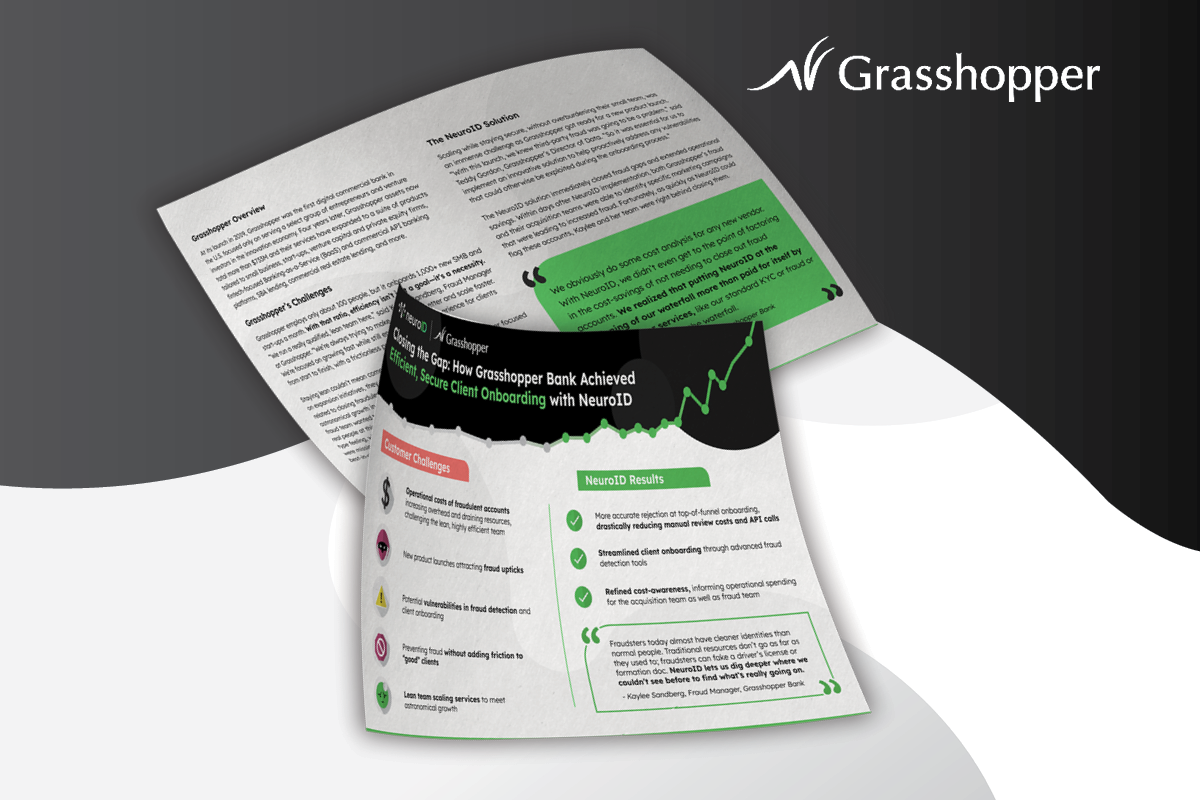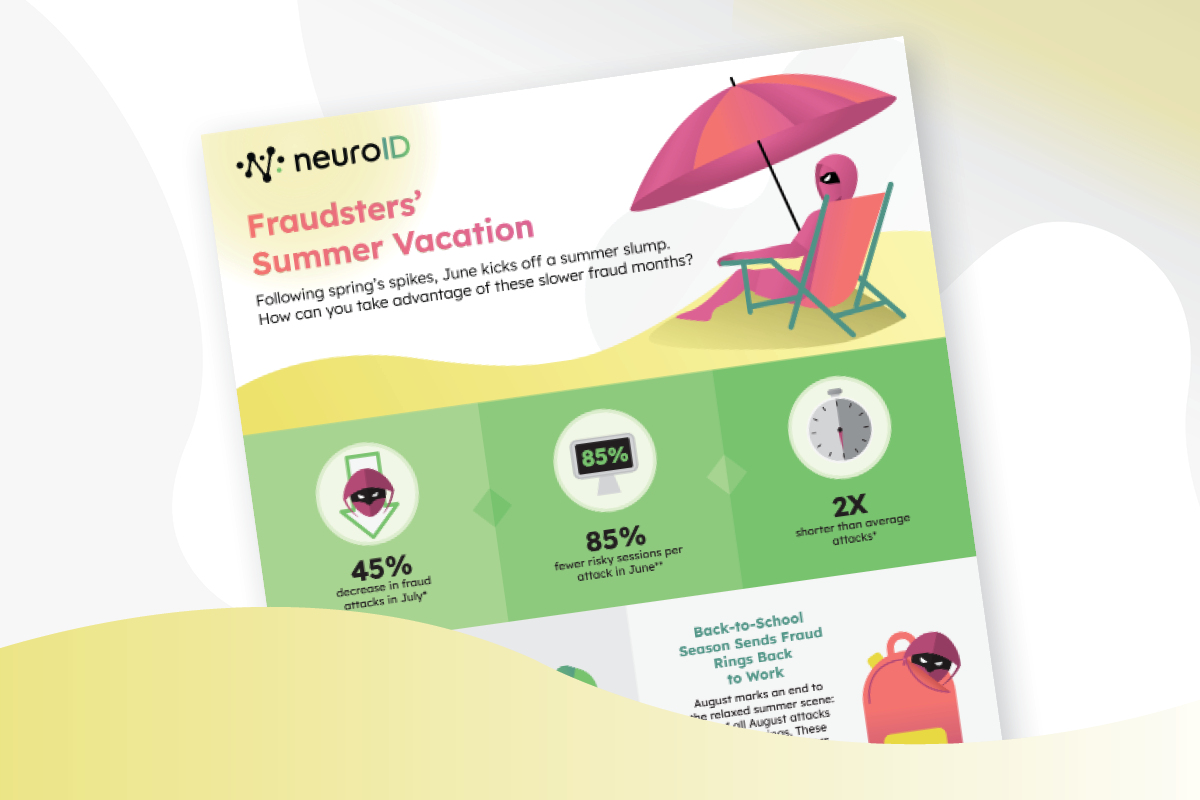
Money 20/20 Europe: The Big Questions Everyone Had About Fintechs & Neobanking
Team NeuroID was excited to be in Amsterdam for the biggest fintech event on the continent: Money 20/20, Europe, where fintech leaders from all over the world came together to discuss the industry’s burning issues.
Jeffrey Shu, NeuroID’s VP of Finance/Strategy, and I talked to many of those leaders over the course of the three-day conference. Our booth was busier than I’ve ever seen it and we were literally being chased down in the halls from folks wanting to talk about behavioral analytics. This in itself wasn’t surprising, as we’ve heard from our customers about how traditional fraud stacks are faltering in the face of sophisticated fraud rings, and having the NeuroID layer of behavioral screening is more important—and value-driving—than ever.
What was surprising is how consistent our discussions were, with the same questions coming up over and over. No matter their size, neobanks were asking us (and themselves) the same questions: How do I validate thin-file, underbanked applicants if I don’t have any data or PII to go off of? How do I avoid AI bias in identity verification? and How do I stand out in a crowded field?
The answer to all these questions: Behavioral analytics.
Why Behavior is Key to Unlocking Growth for Neobanks & Life-Changing Financial Freedom for Their Customers
Neobanks continue to redefine both the financial industry and themselves as the market booms with new growth opportunities. But as the market grows, so does the competitive field.
Whether fintechs and neobanks are looking to gain footholds or maintain their rocket-ship status, all their eyes eventually land on the largely untapped population of underbanked and underserved individuals. These populations have been the key to growth for fintechs such as Chime, who prioritized thin-file and no-file markets. This same philosophy applies to developing and emerging markets, where credit and identity verification is even harder to achieve.
Let’s look at one of the many reasons that we have seen a rapid rise in the number of neobank platforms around the world, specifically in the regions of the Global South—a place I lived and worked for years. Historically, citizens in developing countries have relied on traditional banks; these banks are generally located near urban centers and are difficult to reach for rural populations who have limited or no form of public transit. Additionally, they have high fees, which paired with sky-high poverty rates, makes traditional lending untenable for most. Fortunately, many of these developing nations are experiencing infrastructural leapfrogging, suddenly giving huge portions of their population access to 4G/5G coverage and affordable smart devices. In turn, these populations no longer need traditional banks and can transition to digital lending platforms. The advent of these technologies, paired with the flexibility of neobanks, has been the catalyst for truly life-changing financial freedom for millions of people around the world.
A problem that many neobanks face is the fact that their existing fraud technology looks at what happens during the application process (eg. device fingerprints, KYC, etc.) and much of that information doesn’t exist or is not reliable with the underbanked: so they reject countless good/genuine applicants simply for lack of data. To overcome this problem, NeuroID’s technology looks at how the application happens by only looking at the digital body language of the applicant. Languages may differ country to country, but there are certain aspects of human behavior, the aspects that we measure, that are universal. This gives us the unique ability to look at an applicant from an under-banked population and say with certainty that they are who they say they are and that the lender should approve the loan or new account.
What excites me about NeuroID’s technology is not just that we can stop fraud, it’s that we can help change the lives of the people our customers serve by being the catalyst for a small loan to someone who has never had that access before. We can move the ball forward for that individual, which can change the life of their family, and eventually the society in which they live. NeuroID is a pioneer in democratizing access to money by taking away the common barriers of credit history, location, and language. Because we analyze behavior and intent, not PII, there’s no danger of inherent bias based on ethnicity or otherwise: just improved access and security.
Democratization to access is a pretty great goal to work towards, and I hope you’ll join us on the journey.


